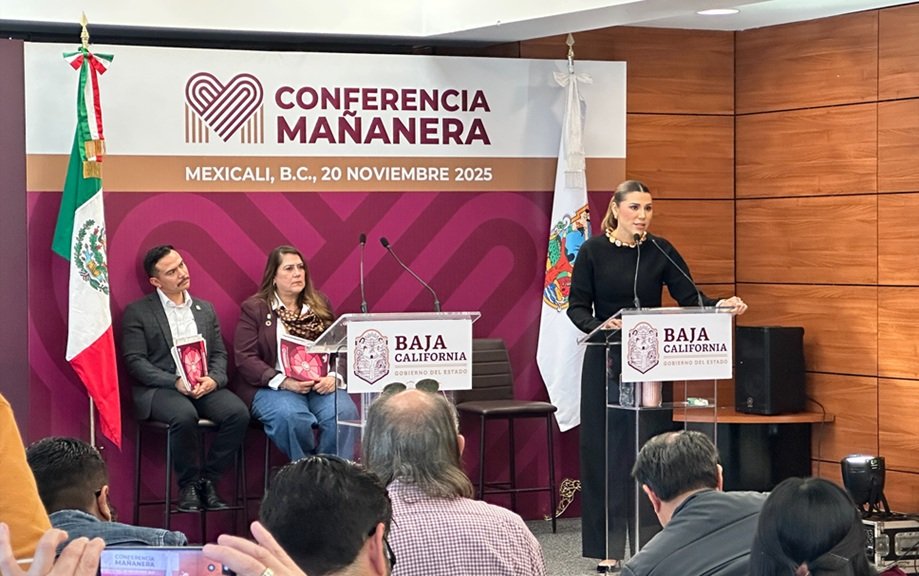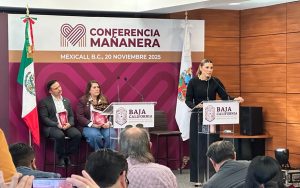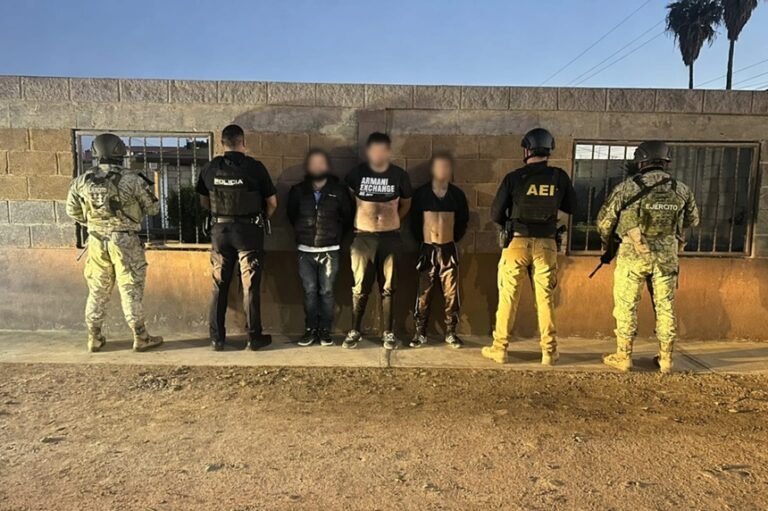
Baja California Government Highlights Poverty Reduction During Press Conference
Share your love
 -Editorial
-Editorial
Brígida María Fernández Rubio, a senior official with the Comité de Planeación para el Desarrollo del Estado (COPLADE), outlined the broader impacts of poverty reduction in Baja California during Gov. Marina del Pilar Ávila Olmeda’s weekly press conference on Nov. 20, emphasizing improvements in income, territorial conditions, and social cohesion.
Fernández said recent 2024 INEGI measurements reflect “the impacts of having reduced poverty to the levels we have reached,” and noted that understanding the state’s progress also requires examining inequality. “Once you reduce poverty and the population with social deficiencies, you also have to view the changes through another lens, which is inequality,” she said.
She pointed to income as the primary driver of Baja California’s results. “These dimensions include income, which has been the first factor that improved in Baja California,” she said. But she stressed that territorial context — including access to paved roads, mobility in localities, and social cohesion — is equally important. “This territorial context is rarely discussed, and this government has focused on both income and the territorial environment,” Fernández said, noting visits to 53 localities and investments intended to strengthen long-term infrastructure.
Fernández also highlighted the administration’s work on reducing social deficiencies tied to education, health, housing, and food access. “This government, from the beginning, has been working even before the Corazones strategy through different policies that take shape in the territory,” she said. She described the Corazones initiative as “somewhat unprecedented at the national level” for its transversal and territorial execution. “Few times do governments have the opportunity to apply a public policy with these methodological characteristics,” she added.
Discussing national macroeconomic trends, Fernández said federal policies have influenced formal employment and family income in the state. “These national policies implemented in the previous federal administration directly impacted formal employment and the income of Baja California families,” she said, adding that these changes contributed to measurable declines in poverty.
Fernández cited the Gini coefficient — a common inequality indicator — as evidence of progress. “This indicator tells us that we are the state with the lowest inequality in the country, according to the Gini coefficient,” she said. She explained that lower inequality reflects a narrowing gap between high and low earners. “It means that the gaps between those who earn more and those who earn less have been reduced, centering overall income levels and generating greater economic well-being for families,” she said.
She concluded that the findings offer “another way of understanding the impacts of having reduced poverty in Baja California,” providing additional guidance for future coordination between national, state, and municipal policies.
Ricardo Serrano Burgos, chief of staff for the Baja California executive branch, said the state’s recent reduction in poverty is linked to public policies implemented by federal, state, and municipal governments. According to Serrano, increases in the minimum wage, federal universal social programs, and state-level assistance — including the Violet card, disability support, programs for older adults, school breakfasts, and infrastructure investments — have contributed to the reported changes. He said the data released by INEGI confirms the results.
Serrano said additional state actions include efforts aimed at strengthening community conditions through programs related to sports, public safety, youth services, and women’s services. He said these initiatives are part of broader strategies carried out by multiple state agencies. Serrano described the results as consistent with the government’s approach to social and economic policy.
Serrano also highlighted education-related measures, citing federal scholarship programs such as the Benito Juárez scholarship and the Rita Cetina scholarship for secondary school students. He said the state is supporting the construction of new high school campuses and plans to introduce scholarships covering 30 percent of students at the Autonomous University of Baja California. Other actions, he said, include school rehabilitation efforts and the expansion of breakfast programs in basic education.



